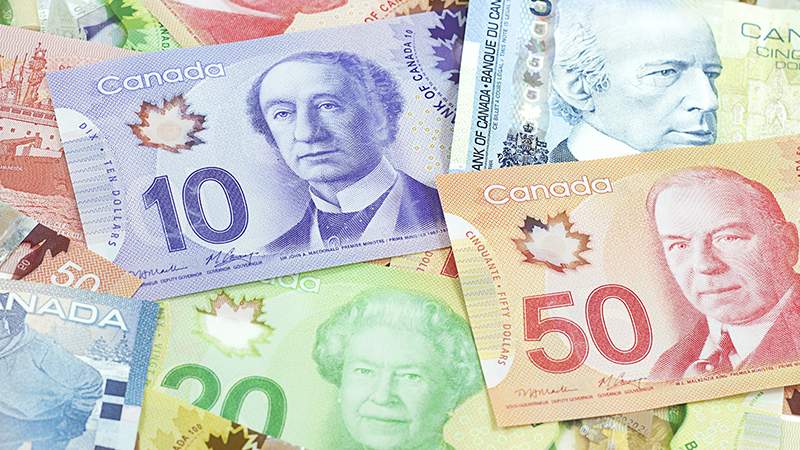Payroll taxes have gone up. What to know if your paycheque is feeling pinched
With the 2024 tax filing season in full swing, most working Canadians will likely soon start feeling the impact of higher federal payroll taxes on their paycheques.
The Canadian Taxpayers Federation (CTF) noted in a December report that nearly all Canadian workers will have to pay a bigger sum of income-based payroll taxes.
The tax changes highlighted in the CTF’s annual report also include higher alcohol and carbon taxes, increases to the maximum pensionable and insurance and a second Canada Pension Plan (CPP) hike mandated by the federal government.
Personal finance expert Barry Choi says the extent that the payroll increase impacts your financial wellbeing depends on how well you’re already coping with the rising costs of living.
“Generally speaking, it probably won’t affect you too much because it’s not like they’re upping the taxes by an insane amount. That said, with Canadian debt levels, everyone’s budgets are already stretched thin,” Choi told Global News. “Every penny counts these days.”

According to The Organisation for Economic Co-operation and Development, income tax combined with employer social security contributions accounted for 82 per cent of the total tax wedge in Canada in 2023. Here is how much Canadians will pay in federal income-based taxes this year.
How much more will you pay?
The increases for 2024 are reflected based on new changes to Employment Insurance (EI) taxes and CPP, or payroll taxes. If you have an income of $30,000 a year, your income taxes have gone up a by a total nine dollars for the year. If you make $40,000, your total tax increase is $12. If you are making $50,000 a year, it’s $15. For $60,000 a year, the increase is $18. Canadians making between $80,000 and $200,000 face the largest income tax increase of $347 more.
Canada Pension Plan
The maximum pensionable earnings covered by the CPP tax have increased, according to the CTF. Employers and employees are now each required to pay $3,867, which represents a $113 tax increase in 2024 for workers earning $68,500 or more. The maximum pensionable earnings in 2023 were $66,600.
A second CPP also began this year, and is applied to any income between $68,500 and $73,200. The maximum tax amount is $188.
“That means the CPP2 is a tax increase levied on income over and above the original CPP taxable income, up to a new ceiling of $73,200,” the taxpayer’s advocacy group explains.
Workers earning $73,200 or more will now have to pay a total of about $4,055 when combining CPP and CPP2, for a total increase of $301 in 2024.
Employment Insurance
The EI tax rate and maximum insurable earnings have increased by a total of $47 for employees (now paying $1,049) and $66 for employers (now paying $1,469).
The increase applies to workers earning $63,200 or more.
In 2018, employees and employers were required to pay $858 and $1,202 in EI taxes respectively. That means the EI tax for employees has increased by $191 and has increased for employers by $267 in the last six years.
Combining CPP and EI, workers making $73,200 or more will have to pay $5,104 in federal payroll taxes this year. Employers will pay $5,524.
How to manage a lower paycheque
Despite what may seem like a minor payroll tax increase, Choi says every new fee, price hike and expense can eventually add up and cause financial stress. Refocusing your budget is a good start to help you save and ease anxiety, he says.
“See if there’s anything you can cut out. See if you’re spending on certain things like eating out or streaming services,” he says.
For guidance on reallocating funds, most banks offer online guidance and apps that track spending.
Choi says another option is re-consolidating your debt, where you take out a line of credit which has a lower interest rate than your credit cards, for example.
“You would take your line of credit, immediately pay off your credit card debt, then you’re only paying that lower interest, which could free up some funds,” he said.
For Canadians homeowners who are really struggling, Choi suggests looking into restructuring your mortgage so the amortization, or time it takes to pay it off, is extended.
“Even though you’ll pay more interest in the long term (it could) help you survive another day. Right now, it could be worth it,” he said.
Cited from: Global News








